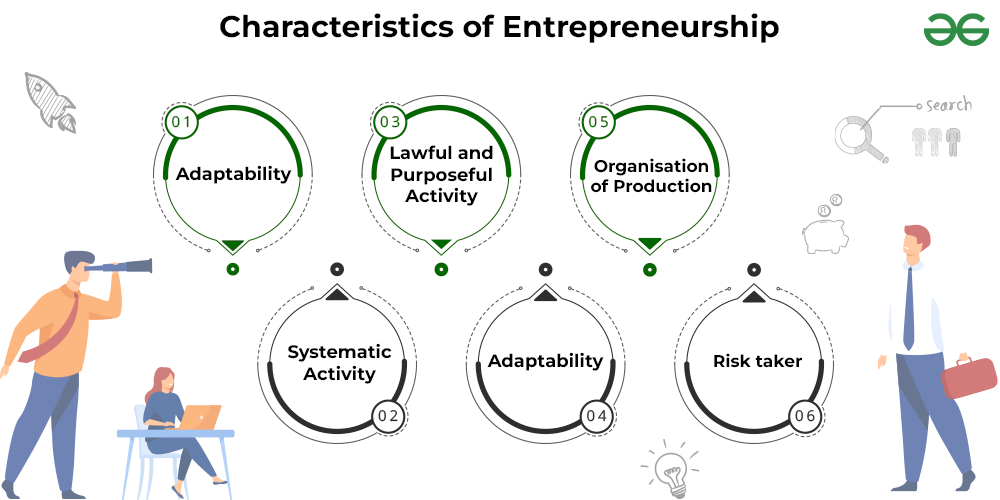Stefanie Stantcheva, a distinguished Harvard economist, has made significant waves in the field of public finance research, culminating in her recent accolade as the recipient of the prestigious Clark Medal 2025. This recognition is bestowed upon remarkable economists under 40 who have exhibited extraordinary contributions, and Stantcheva’s work on tax policy impact has been groundbreaking. Her research delves into the intricate relationship between tax systems and economic behavior, providing fresh insights into how innovative practices can flourish or falter under varying tax conditions. Stantcheva’s dedication to understanding the intersection of innovation and economy is reshaping perspectives on public policy. As a leader at the Social Economics Lab, she continues to push boundaries in exploring economic issues that resonate with current global challenges, making her a vital figure in the discourse on economic progress.
In the realm of applied economics, the influence of effective fiscal frameworks on societal growth cannot be overstated. The recent recognition of Stefanie Stantcheva as a leading economist not only highlights her contributions to the discourse surrounding taxation but also underscores the broader implications of her research on both innovation and economic stability. Her analytical lens on tax strategy offers crucial insights that inform policymakers and educators alike. By examining fundamental questions about how tax laws shape economic activity, Stantcheva lays the groundwork for future advancements in public finance. Her work stands as a testament to how refined economic theories can lead to actionable strategies that foster sustainable development and social equity.
Stefanie Stantcheva: A Visionary in Economic Thought
Stefanie Stantcheva, an esteemed economist at Harvard, has made a significant mark in the field of public finance research, especially recognized for her groundbreaking work on tax policy and its affects on the innovation landscape. Her recent accolade, the John Bates Clark Medal, not only highlights her contributions but also emphasizes her role as one of the leading under-40 economists making impactful strides in economics today. With the intersection of her insights on taxation and economic behavior, Stantcheva reflects a deep understanding of the complexities tied to fiscal policies and their broader implications on societal innovation.
Stantcheva’s research has illustrated the delicate balance between taxation and innovation, particularly in her influential 2022 paper, “Taxation and Innovation in the 20th Century.” This study showcased how fiscal changes create ripple effects on innovation outputs, reinforcing the notion that policy design is paramount in fostering a thriving economic environment. By emphasizing taxation’s elasticity concerning innovation, she brings to light the essential role of informed tax policy in motivating or inhibiting technological advancement.
The Impact of Tax Policy on Innovation and Economy
Tax policy is often hailed as a critical determining factor in shaping the country’s economic landscape. As illustrated in Stantcheva’s work, the design of a tax system has the power to either spur or stifle economic growth. When calibrated correctly, tax incentives can promote innovation by encouraging research and development investments, leading to advancements in various sectors, including technology and healthcare. Conversely, poorly designed tax structures can lead to disincentives, ultimately disrupting the engine of economic productivity and growth.
Moreover, Stantcheva’s findings have broad implications for how governments approach economic policy and public finance. By revealing how innovation responds to taxation, her research urges policymakers to consider the nuanced impacts that changes in tax policy can have on economic behavior. For economists and policymakers alike, her work serves as a reminder of the interconnectedness between fiscal strategies and the health of the economy, emphasizing the necessity for comprehensive public finance research to guide effective policymaking.
Public Finance Research: An Essential Tool for Economic Growth
Public finance research plays a pivotal role in understanding the dynamics of government economic policies. It offers critical insights that can inform better tax frameworks, spending strategies, and fiscal incentives aimed at achieving sustainable economic growth. Economists like Stefanie Stantcheva dedicate their careers to unraveling the complexities of public finance, exploring topics that range from taxation effects on innovation to the broader consequences for social mobility and trade. Such research is essential in crafting policies that promote equitable growth and address the diverse challenges faced by economies.
As governments worldwide grapple with the implications of taxation on their citizens and businesses, the insights from public finance research can serve as a roadmap for developing effective economic policies. With economists like Stantcheva leading the way in unpacking complex interactions between tax policy and economic behaviors, the academic community continues to emphasize the importance of informed decision-making. The quest for innovative solutions to pressing economic issues underscores the need for ongoing research in this vital field.
The Future of Taxation and Its Role in Economic Innovation
Looking forward, the role of taxation in fostering innovation will be increasingly crucial as societies strive to tackle modern challenges such as climate change, healthcare advancements, and technological progress. Economists like Stefanie Stantcheva are paving the way in this field, exploring the intricate link between fiscal policies and innovative capabilities. By advocating for tax systems that encourage creativity and risk-taking, Stantcheva’s research highlights the potential for economic policies to drive advancements that benefit society as a whole.
The way forward involves not only understanding the mechanics of taxation but also recognizing its broader implications on innovation ecosystems. Through engaging research and analysis, Stantcheva and others in her domain seek to empower policymakers with the knowledge needed to craft tax structures that not only generate revenue but also stimulate economic dynamism. As the future unfolds, the critical examination of taxation and its effects on innovation will be essential in shaping prosperous economies globally.
The Significance of Recognition in Economics: The Clark Medal
Receiving the John Bates Clark Medal is a prestigious honor that reflects significant contributions made by an economist under the age of 40. This recognition underscores the transformative work that individuals like Stefanie Stantcheva accomplish in their careers. The Clark Medal serves as a benchmark for excellence in the field of economics, acknowledging emerging scholars who are poised to influence economic policy and practice on a global scale. Stantcheva’s receipt of this award not only identifies her as a leading thinker but also motivates upcoming economists to pursue impactful research.
The impact of the Clark Medal extends beyond personal accolades; it highlights the importance of young economists in shaping current economic discourse. By awarding such honors, the economic community encourages innovative approaches to established norms, inviting fresh perspectives on pressing issues such as tax policy and innovation. For Stantcheva, this recognition fosters an environment where her work may inspire others and contribute to ongoing discussions about the future of public finance and its role in economic sustainability.
Stantcheva’s Social Economics Lab: A Hub for Economic Research
The Social Economics Lab, founded by Stefanie Stantcheva in 2018, stands as a vital contributor to understanding the complex interplay between economic policies and social behaviors. By creating a dedicated space for exploring economic issues, the lab focuses on innovative research that addresses important challenges such as equity in taxation, immigration policy, and climate change. This interdisciplinary approach not only enhances Flantcheva’s work but also invites collaboration among various fields, reinforcing the need for integrated solutions to complex societal challenges.
Research conducted at the Social Economics Lab emphasizes the importance of examining the socio-economic factors that shape public perception regarding economics. By delving into how emotions and mindsets influence policy acceptance and implementation, Stantcheva’s work broadens the discussion around public finance and economic innovation. The lab’s ongoing projects highlight a commitment to exploring fresh ideas and methodologies, ultimately aiming to improve the efficacy of economic policies and their alignment with public interests.
Exploring the Interconnection between Taxation and Social Mobility
Taxation has a profound influence on social mobility, shaping individuals’ opportunities and experiences within the economy. Understanding this relationship is central to Stantcheva’s work and the discussions at her Social Economics Lab. By studying how tax policies affect different socioeconomic groups, she highlights the importance of equity in taxation and its consequences for upward mobility. Such insights are crucial for crafting policies that not only generate revenue but also promote a fair and just environment for all members of society.
Through her research, Stantcheva continues to raise awareness about the critical need for inclusive economic policies that facilitate social mobility. By encouraging policymakers to consider the broader impacts of taxation on diverse populations, she aims to foster a more equitable society where opportunities are accessible to everyone, regardless of their background. The intersection between tax policy and social mobility is a testament to the complexities inherent in economic systems, making research in this area essential for promoting social equity.
Navigating Economic Challenges with Innovative Tax Solutions
In an era marked by rapid technological advancements and changing economic landscapes, innovative tax solutions are more important than ever. With her detailed exploration of tax policies, Stefanie Stantcheva emphasizes how creative fiscal strategies can address modern challenges while promoting economic growth. Her research lays the groundwork for policies that can adapt to the needs of a dynamic economy, showcasing the necessity for innovation not just in technology, but also within the realm of fiscal policy.
As governments face unprecedented challenges, Stantcheva’s work serves as a guiding light for crafting responsive tax policies that foster innovation and economic resilience. Understanding the intricate relationships within public finance allows for the development of solutions that can enhance economic stability and encourage entrepreneurial growth. In a rapidly evolving world, the quest for effective and innovative tax policies is critical in maintaining a competitive and flourishing economy.
Frequently Asked Questions
What is Stefanie Stantcheva known for in her research on tax policy?
Stefanie Stantcheva is renowned for her pioneering research on tax policy, particularly its impact on innovation and economic behavior. As a Harvard economist and the 2025 John Bates Clark Medal winner, she has conducted significant studies that reveal how tax systems can significantly influence economic activity, with insights into how higher taxes affect the quantity of innovation.
How has Stefanie Stantcheva’s work influenced public finance research?
Through her groundbreaking research, Stefanie Stantcheva has greatly influenced public finance research by providing new insights into tax policy and its ramifications on economic behavior. Her studies highlight the critical relationship between well-designed tax systems and the encouragement of innovation, showcasing its potential to either promote or hinder economic growth.
What is the significance of the John Bates Clark Medal awarded to Stefanie Stantcheva?
The John Bates Clark Medal is a prestigious award recognizing under-40 economists for outstanding contributions to the field. Stefanie Stantcheva received this accolade in 2025, underscoring her significant impact on tax policy, innovation, and public finance research as a Harvard economist.
What themes does Stefanie Stantcheva explore in her innovation and economy research?
In her research on innovation and economy, Stefanie Stantcheva explores themes such as the effects of tax policy on innovation, economic behavior, trade, immigration, and social mobility. She aims to understand how economic policies influence public perception and decision-making, notably through the lens of emotions and mindsets.
What contributions has Stefanie Stantcheva made to Harvard’s economics department?
Stefanie Stantcheva has made substantial contributions to Harvard’s economics department, from her research that examines tax policy’s impact on economic behaviors to founding the Social Economics Lab. Her work not only enriches academic discourse but also enhances the department’s reputation, exemplified by her receiving the 2025 John Bates Clark Medal.
How do Stefanie Stantcheva’s findings relate to innovation and taxation?
Stefanie Stantcheva’s findings emphasize that taxation has high elasticity in relation to innovation—meaning that changes in tax policy significantly affect the level of innovation. Her studies suggest that while higher taxes may reduce the quantity of innovations, they do not necessarily diminish the quality of inventions, which reflects crucial insights into designing effective tax policies.
What key areas is Stefanie Stantcheva currently researching at the Social Economics Lab?
At the Social Economics Lab, Stefanie Stantcheva is currently researching various key areas including trade, immigration, climate change, and social mobility. Additionally, she is exploring the interplay between emotions and economic policy and studying mindsets such as zero-sum thinking, which can affect public support for policy decisions.
| Key Points | Details |
|---|---|
| Honored Economist | Stefanie Stantcheva awarded the 2025 John Bates Clark Medal. |
| Recognition | Annual prize for significant contributions by economists under 40. |
| Research Focus | Stantcheva’s work includes insights on tax policy, innovation, behavior, and public finance. |
| Impact of Taxation | Her research shows a high elasticity of innovation in response to tax policy changes. |
| Social Economics Lab | Founded by Stantcheva in 2018 to explore economic issues and policies. |
Summary
Stefanie Stantcheva has significantly impacted the field of economics through her pioneering research on tax policy and its implications for innovation and economic behavior. The recent recognition of her achievements with the 2025 John Bates Clark Medal speaks volumes about her contributions. As she continues to lead the Social Economics Lab, her work promises to deepen our understanding of crucial economic issues, including the emotional aspects of policy-making.


